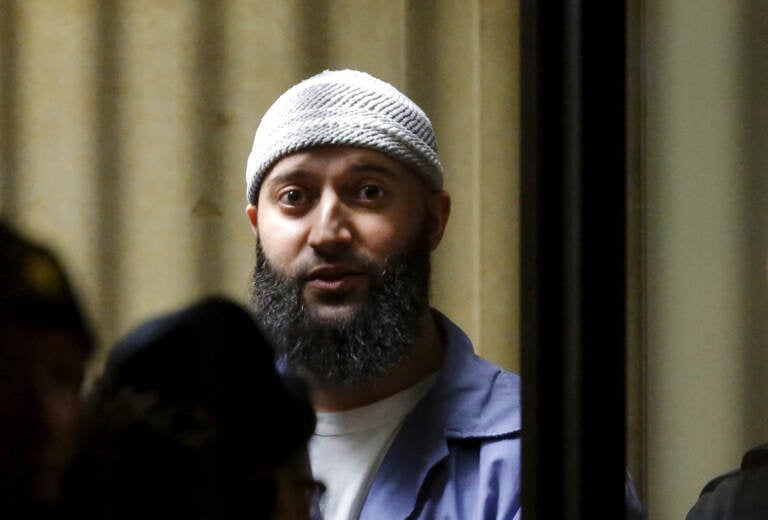Prosecutors drop charges against Adnan Syed in ‘Serial’ case
Prosecutors dropped charges against Adnan Syed on Tuesday in the 1999 killing of Hae Min Lee, a case that was chronicled in the hit podcast “Serial."

Adnan Syed leaves the Baltimore City Circuit Courthouse in Baltimore, Maryland February 5, 2016. The Maryland man whose 2000 murder conviction was thrown into question by the popular 'Serial' podcast was in court to argue he deserved a new trial because his lawyers had done a poor job with his case. (Carlos Barria/REUTERS)
Prosecutors dropped charges against Adnan Syed on Tuesday in the 1999 killing of Hae Min Lee, a case that was chronicled in the first season of the hit podcast “Serial.”
Emily Witty, a spokeswoman for the city of Baltimore’s state’s attorney’s office, said in an email that her office had dropped its case against Syed and would release further details about its decision later Tuesday.
Laura Nirider, a co-director of the Center on Wrongful Convictions at Northwestern Pritzker School of Law who accompanied Syed when he walked out of prison last month, earlier tweeted: “Breaking news: After the latest round of DNA testing generated results that, like previous rounds of testing, excluded Adnan Syed, he has now been formally exonerated!”
A Baltimore judge last month overturned Syed’s murder conviction and ordered him released from prison, where the 41-year-old had spent more than two decades. Circuit Judge Melissa Phinn also gave prosecutors 30 days in which to decide whether to retry Syed or drop the charges.
Phinn ruled that the state had violated its legal obligation to share evidence that could have bolstered Syed’s defense. After his release, Syed was placed on home detention with GPS location monitoring.
Lee’s family had asked Maryland’s intermediate appellate court to halt the case. Attorney Steve Kelly said Lee’s family is not challenging Syed’s release, but instead wanted the judge to hold another hearing that the family can attend in-person and address the court — Lee’s brother Young Lee appeared via videoconference on short notice during the previous hearing. The attorney did not have an immediate comment Tuesday.
Last week, state Attorney General Brian Frosh’s office filed court papers supporting the appeal by Lee’s family.
Syed has maintained his innocence for decades and captured the attention of millions in 2014 when the debut season of “Serial” focused on the case and raised doubts about some of the evidence, including cellphone tower data.
Prosecutors have previously said that a reinvestigation of the case revealed evidence regarding the possible involvement of two alternate suspects. The two suspects may have been involved individually or together, the state’s attorney’s office said.
One of the suspects had threatened Lee, saying “he would make her (Ms. Lee) disappear. He would kill her,” according to a court filing.
The suspects were known persons at the time of the original investigation and were not properly ruled out nor disclosed to the defense, prosecutors said.
Prosecutors also said new information revealed that one of the suspects was convicted of attacking a woman in her vehicle, and that one of the suspects was convicted of engaging in serial rape and sexual assault.
Prosecutors also noted unreliable cellphone data used during Syed’s court case to corroborate his whereabouts on the day of the crime. The notice on the records specifically advised that the billing locations for incoming calls “would not be considered reliable information for location.”
Syed served more than 20 years in prison for the strangling of Lee, who was 18 at the time. Her body was found weeks later buried in a Baltimore park.
More than a decade later, the popular “Serial” podcast revealed little-known evidence and attracted millions of listeners, shattering podcast-streaming and downloading records.
WHYY is your source for fact-based, in-depth journalism and information. As a nonprofit organization, we rely on financial support from readers like you. Please give today.



